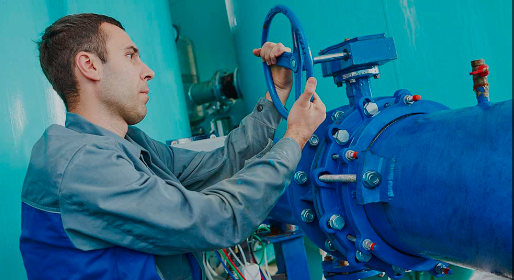Unveiling the World of Water Treatment Plant Operators: Guardians of Liquid Gold

Historical Evolution of Water Treatment
1 Ancient Water Purification Techniques
The history of water treatment dates back to ancient civilizations, where rudimentary methods like boiling, filtration through sand, and the use of natural chemicals were employed to make water potable. Recognizing the link between clean water and public health, early societies laid the foundation for modern water treatment.
2 19th Century Innovations
The 19th century witnessed groundbreaking innovations in water treatment. The introduction of sand filtration and the development of chlorine disinfection marked significant milestones, leading to a substantial reduction in waterborne diseases and laying the groundwork for more sophisticated treatment processes.
3 Advancements in the 20th Century
The 20th century brought further advancements, including the understanding of coagulation and flocculation processes. Water treatment evolved into a science that combines chemistry, microbiology, and engineering to address diverse water quality challenges.
Educational Pathways for Water Treatment Plant Operators
1 Academic Background in Water Sciences
Water Treatment Plant Operators often pursue education in water sciences, encompassing disciplines such as hydrology, chemistry, and environmental engineering. Academic programs provide a theoretical foundation for understanding water treatment processes and the science behind them.
2 Specialized Training Programs
In addition to formal education, operators undergo specialized training programs specific to water treatment plant operations. These programs include hands-on training in operating treatment equipment, understanding water quality parameters, and responding to emergency situations.
3 Certifications and Continuing Education
Certifications, such as those offered by organizations like the American Water Works Association (AWWA) or the Water Environment Federation (WEF), validate the expertise of water treatment professionals. Continuous learning and staying updated on emerging technologies are crucial elements of a water treatment operator’s career.
Roles and Responsibilities of Water Treatment Plant Operators
1 Operation of Treatment Processes
Operators are responsible for the day-to-day operation of water treatment processes. This includes overseeing the intake of raw water, applying appropriate treatment methods, and monitoring the efficiency of the treatment plant.
2 Water Quality Monitoring
Ensuring water quality is a primary responsibility. Operators regularly sample and analyze water to assess parameters such as pH, turbidity, and chlorine levels. Continuous monitoring helps identify deviations from standards and ensures compliance with regulations.
3 Equipment Maintenance and Troubleshooting
Operators perform routine maintenance on treatment equipment, such as pumps, valves, and chemical feed systems. Additionally, they troubleshoot and address any malfunctions to prevent disruptions in the treatment process.
Treatment Processes in Water Treatment Plants
1 Coagulation and Flocculation
The process of coagulation involves the addition of chemicals to destabilize particles in the water. Flocculation follows, promoting the formation of larger particles that can be more easily removed during subsequent treatment stages.
2 Sedimentation
During sedimentation, water flows slowly through large basins, allowing suspended particles to settle to the bottom. The clarified water is then separated from the settled solids.
3 Filtration
Filtration involves passing water through layers of sand, gravel, or other media to remove remaining particles. This step further purifies the water before disinfection.
4 Disinfection
Chlorine, ozone, or ultraviolet (UV) light is commonly used for disinfection to eliminate harmful microorganisms. This crucial step ensures the microbiological safety of the treated water.
Challenges Faced by Water Treatment Plant Operators
1 Emerging Contaminants
Operators grapple with the challenge of addressing emerging contaminants, including pharmaceuticals and industrial chemicals, which may not be adequately regulated. Continuous research and adaptation of treatment processes are necessary to address these evolving concerns.
2 Climate Change Impacts
The effects of climate change, including altered precipitation patterns and increased frequency of extreme weather events, pose challenges to water treatment. Operators must anticipate and mitigate the impact of climate-related changes on water sources.
3 Aging Infrastructure
Many water treatment plants operate with aging infrastructure, leading to increased maintenance needs and potential vulnerabilities. Upgrading and modernizing infrastructure are ongoing challenges for operators.
Rewards and Opportunities in Water Treatment
1 Public Health Impact
One of the most rewarding aspects of water treatment plant operation is the direct impact on public health. Operators contribute to providing communities with safe and clean drinking water, preventing waterborne diseases.
2 Environmental Stewardship
Water treatment professionals play a crucial role in environmental stewardship by safeguarding water sources and ecosystems. Responsible water treatment practices contribute to the conservation of aquatic habitats.
3 Career Advancement and Leadership Opportunities
Experienced operators have opportunities for career advancement, including supervisory and managerial roles. Leadership positions allow individuals to influence broader water management strategies and policies.
Technological Advancements in Water Treatment
1 Automation and Remote Monitoring
Advancements in automation enable the remote monitoring of water treatment processes. Operators can access real-time data, control treatment parameters, and respond to alarms remotely, enhancing efficiency and responsiveness.
2 Advanced Analytical Tools
Sophisticated analytical tools, such as online sensors and advanced laboratory equipment, contribute to more accurate and rapid water quality assessments. These tools aid operators in making informed decisions about treatment adjustments.
3 Innovations in Membrane Technology
Membrane filtration technologies, including reverse osmosis and nanofiltration, have seen significant advancements. These technologies offer enhanced removal of contaminants and provide a critical barrier against emerging pollutants.
The Future of Water Treatment
1 Smart Water Treatment Plants
The future involves the development of smart water treatment plants equipped with sensors, artificial intelligence (AI), and predictive analytics. These technologies optimize treatment processes, improve energy efficiency, and enhance overall plant performance.
2 Circular Water Management
The concept of circular water management emphasizes sustainable practices, including water reuse and resource recovery. Future water treatment plants may integrate circular principles to minimize waste and maximize resource efficiency.
3 Community Engagement and Education
A key aspect of the future of water treatment is heightened community engagement and education. Operators will play a vital role in fostering awareness about water conservation, source protection, and the importance of individual contributions to water quality.
Conclusion:
As we conclude this immersive journey, it is clear that Water Treatment Plant Operators are the guardians of liquid gold, tirelessly working to ensure the availability of this precious resource for current and future generations. Their role is not only about managing treatment processes but also about safeguarding public health, preserving the environment, and contributing to a sustainable and water-secure world.







